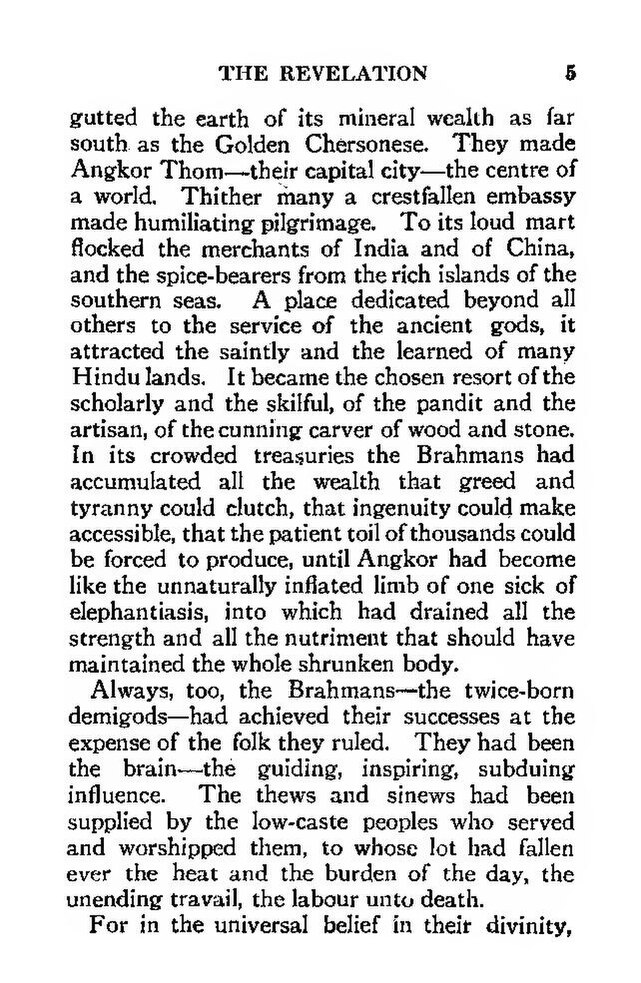gutted the earth of its mineral wealth as far south as the Golden Chersonese. They made Angkor Thom—their capital city—the centre of a world. Thither many a crestfallen embassy made humiliating pilgrimage. To its loud mart flocked the merchants of India and of China, and the spice-bearers from the rich islands of the southern seas. A place dedicated beyond all others to the service of the ancient gods, it attracted the saintly and the learned of many Hindu lands. It became the chosen resort of the scholarly and the skilful, of the pandit and the artisan, of the cunning carver of wood and stone. In its crowded treasuries the Brahmans had accumulated all the wealth that greed and tyranny could clutch, that ingenuity could make accessible, that the patient toil of thousands could be forced to produce, until Angkor had become like the unnaturally inflated limb of one sick of elephantiasis, into which had drained all the strength and all the nutriment that should have maintained the whole shrunken body.
Always, too, the Brahmans—the twice-born demigods—had achieved their successes at the expense of the folk they ruled. They had been the brain—the guiding, inspiring, subduing influence. The thews and sinews had been supplied by the low-caste peoples who served and worshipped them, to whose lot had fallen ever the heat and the burden of the day, the unending travail, the labour unto death.
For in the universal belief in their divinity,
